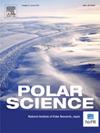北极土著人民传统知识的多层次法律保护:促进可持续发展的非殖民化知识生产
IF 1.5
4区 地球科学
Q3 ECOLOGY
引用次数: 0
摘要
本文全面探讨了对北极土著人民传统知识的法律保护,强调了这些知识在他们的文化和精神认同中所起的重要作用。它首先强调了北极土著人民与其环境之间独特的共生关系,强调了气候变化如何威胁到这种微妙的平衡和他们生存的本质。经过几代人积累的传统知识被认为是对应对气候变化的科学认识的重要补充。本文考察了北极传统知识的多层次法律保护。首先,在国际一级,它讨论了诸如劳工组织第169号公约和开发方案等文书,它们分别强调文化层面和自决。将传统知识整合到人权、环境和经济法律中进行了探索。其次,还分析了北极地区的区域法律框架,并以软法律文件为佐证。第三,本文进一步探讨了加拿大、挪威、芬兰和瑞典的国家法律保护,详细介绍了每个国家如何将传统知识纳入立法和司法裁决。本文章由计算机程序翻译,如有差异,请以英文原文为准。
Multi-level legal protection of traditional knowledge of Arctic indigenous peoples: Decolonizing knowledge production for sustainable development
The article provides a comprehensive exploration of the legal protection of traditional knowledge of Arctic Indigenous Peoples, emphasizing the vital role this knowledge plays in their cultural and spiritual identity. It begins by highlighting the unique and symbiotic relationship between Arctic Indigenous Peoples and their environment, underscoring how climate change threatens this delicate balance and the very essence of their existence. Traditional knowledge, accumulated over generations, is presented as a crucial complement to scientific understanding in combating climate change. The article examines multi-level legal protections of Arctic traditional knowledge. First, at the international level, it discusses instruments like the ILO Convention No. 169 and the UNDRIP, which emphasize cultural dimensions and self-determination, respectively. The integration of traditional knowledge into human rights, environmental, and economic laws is explored. Second, regional legal frameworks are also analyzed, which are corroborated by soft law documents, in the Arctic. Third, the article further delves into national legal protections across Canada, Norway, Finland, and Sweden, detailing how each country incorporates traditional knowledge into legislation and judicial decisions.
求助全文
通过发布文献求助,成功后即可免费获取论文全文。
去求助
来源期刊

Polar Science
ECOLOGY-GEOSCIENCES, MULTIDISCIPLINARY
CiteScore
3.90
自引率
5.60%
发文量
46
期刊介绍:
Polar Science is an international, peer-reviewed quarterly journal. It is dedicated to publishing original research articles for sciences relating to the polar regions of the Earth and other planets. Polar Science aims to cover 15 disciplines which are listed below; they cover most aspects of physical sciences, geosciences and life sciences, together with engineering and social sciences. Articles should attract the interest of broad polar science communities, and not be limited to the interests of those who work under specific research subjects. Polar Science also has an Open Archive whereby published articles are made freely available from ScienceDirect after an embargo period of 24 months from the date of publication.
- Space and upper atmosphere physics
- Atmospheric science/climatology
- Glaciology
- Oceanography/sea ice studies
- Geology/petrology
- Solid earth geophysics/seismology
- Marine Earth science
- Geomorphology/Cenozoic-Quaternary geology
- Meteoritics
- Terrestrial biology
- Marine biology
- Animal ecology
- Environment
- Polar Engineering
- Humanities and social sciences.
 求助内容:
求助内容: 应助结果提醒方式:
应助结果提醒方式:


